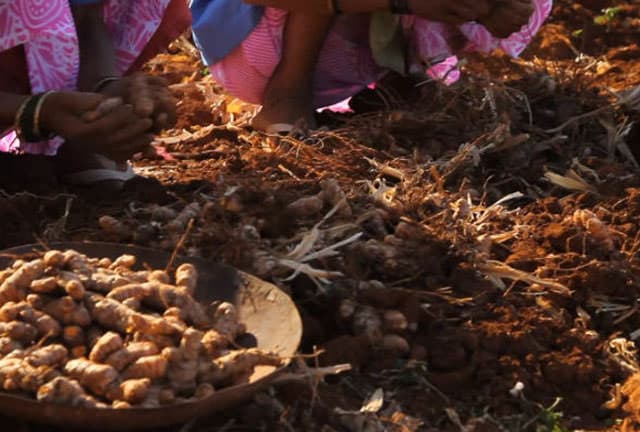our ingredient promise
At Aveda, The Art and Science of Pure Flower and Plant Essences, we believe that Nature is the best beauty artist of all. This is why we continually strive to increase our use of naturally derived ingredients whenever possible.
Naturally Derived: We define naturally derived ingredients to be those for which more than 50% of the molecule comes from a plant, non-petroleum mineral, water, or some other natural source.
Our commitment to deliver high performance, botanically-based products that are kinder to the planet – which is good for all of us -- goes much deeper than our use of naturally derived ingredients.
aveda and green ingredients
We connect our Mission with product development by using what we define to be green ingredients whenever possible.
At Aveda, our goal is to ensure our products will benefit our guests through exceptional performance, while we deliver our continued promise of environmental and social responsibility.
Aveda's products are formulated without parabens, phthalates and sodium lauryl sulfate.
We work hard to ensure that ecological and cultural diversity is represented by responsibly sourcing key ingredients from different habitats all over the world.
Through fair compensation, we positively impact the people and economies from which some of our products' ingredients are sourced.
Aveda firmly believes that we will succeed in our goal by striving to use what we call green ingredients in our products whenever possible. Our definition of a green ingredient requires that it meet at least one of the following criteria:
• Naturally derived, which we define to be those for which more than 50% of the molecule comes from a plant, non-petroleum mineral, water, or some other natural source.
• Certified organic.
• Sourced from sustainable or renewable plant-based origins, and does not negatively impact the ecosystems from which they are sourced.
To Aveda, continued progress and improvement in the number of green ingredients we use in our products is an essential part of ensuring we honor our Mission commitment to care for the world we live in.
Aveda's use of green Ingredients in practice:
• Since 2000, Aveda has substantially increased our purchases of organic raw herbal ingredients and organic essential oils from 20%-25% of total tonnage to more than 90% for both while also increasing our total tonnage significantly. The exact percentage varies slightly from year to year due to product mix and availability of certified ingredients.
• Aveda has established Soil to Bottle™ traceability for certain key ingredients, which allows Aveda to progressively document and expand the source of these ingredients while promoting quality through its supply chain.
• Aveda's development of its exclusive Babassu Betaine technology is part of its efforts to develop and use sustainable plant-based alternatives to replace the use of petrochemicals whenever possible.
• All of Aveda's essential oils are processed in an environmentally responsible manner through steam distillation
ingredient sourcing
Journey with us—to trace Aveda's ingredients back to the farm or harvesting co-op. We call it Soil to Bottle℠, and we do it to ensure fair compensation throughout the process.
Aveda develops close working partnerships with certain communities and/or suppliers and seeks to use them as our primary source for specific ingredients. We frequently reference these relationships in our promotional materials. However, sometimes due to conditions beyond our control (e.g., drought, pests, and capacity limitations) these communities and/or suppliers are unable to meet our needs for an ingredient, including being unable to supply some or all of it. When such situations occur, Aveda uses additional suppliers to provide high-quality alternative sources until we are able to resume sourcing from the primary supplier.













